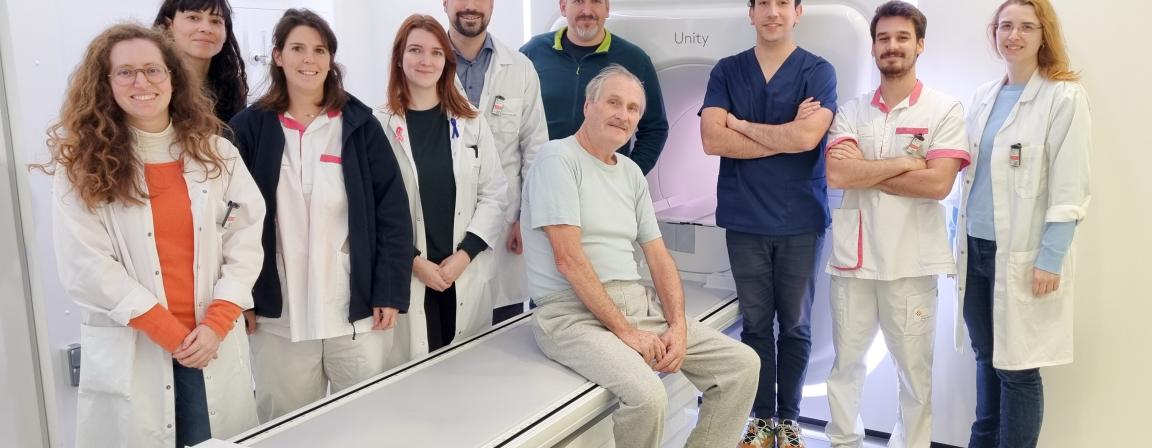100th patient treated with the MRI-LINAC at the Jules Bordet Institute
100th patient treated with the MRI-LINAC at the Jules Bordet Institute : The medicine of the future at the service of patients

Since the Jules Bordet Institute moved to its new site and thanks to financing of 6.5 million euros from the Jules Bordet Association, the Radiotherapy Department can now count on a very particular machine for treating cancer patients: the 1.5 Tesla MRI-Linac, the first in Belgium. A machine that is bringing new hope to a lot of people.
Real-time adaptive radiotherapy
The MRI-Linac combines the imaging precision of an MRI that clearly identifies the treatment zone with the power of a linear accelerator to deliver an optimal treatment. This association permits what is known as “real-time adaptive” radiotherapy. For the patient, this represents a personalised approach that enables treatment to be adapted daily depending on the morphology of the tumour and neighbouring organs at the time. The aim is twofold: to minimise the treatment toxicity while optimising the dose delivery and at the same time to preserve the patient’s quality of life as no more than 3 to 5 trips to the hospital are needed. A standard treatment lasts between 20 and 35 sessions.
One more step towards tomorrow’s medicine
This machine is making it possible to take one more step towards tomorrow’s medicine by obtaining functional images that provide information on the tumour biology. The next step will be to adapt the treatment to the morphology as well as the tumour biology at the time, in keeping with the philosophy of ultra-personalised medicine. This machine is used primarily for patients with cancers of the abdomen or pelvis (prostrate, rectum) as well as cancers that are technically difficult to treat such as pancreatic, liver and adrenal cancer. Various research projects are also underway. Five pancreatic patients have been included in an innovative randomised stereotaxis study led by the Institut Jules Bordet and involving several Belgian centres. This progress is testimony to the commitment of the Jules Bordet Institute and the Brussels University Hospital to providing personalised care at the leading edge of technology, thereby opening the door to a new era in cancer radiotherapy.